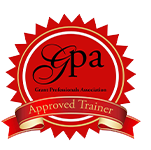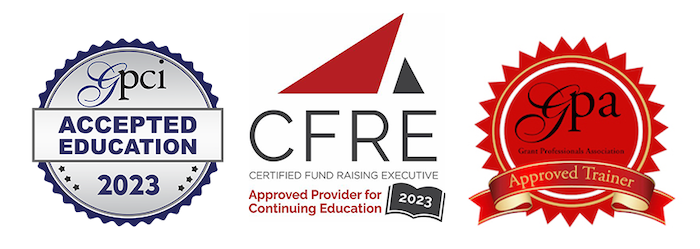
13 Jan Create a High Quality Case Statement
People want to give to organizations that present a compelling vision. As you approach donors, they will want to know why they should care about your non-profit’s work. Great Case Statements include a mix of both emotionally compelling stories and descriptions of the work you are doing, as well as cold, hard facts that back up your claim to be a positive force in the world. Any nonprofit needing to write more than one proposal to fund their project or organization knows grant proposals need to be created as efficiently and effectively as possible.
In this webinar, presenter Julie Assel, GPC guides participants through the essential elements of a case statement, strategies for tailoring the case statement to the funders’ missions, and techniques for keeping the language current. Creating a comprehensive case statement with high-quality language about your organization and program is key to efficiency, helping you avoid starting from scratch every time you begin writing a proposal.
What You’ll Learn:
- How to write your organization history, description, organization and services
- How to write your program, project description, problem statement and need
- How to write compelling stories and shocking statements
- The connection between the budget narrative
- How research supports your methods and their sustainability
- The role of evaluation in your case statement and the tools used
- How to demonstrate you are making sustainable change in your community
Price: $60
CEUs
This training aligns with the Grant Professional Certification Institute’s Competencies and Skills and is approved for 1.0 Continuing Education Unit (CEU). Full participation in this training is also applicable for 1.0 points in Category 1.B – Education of the CFRE International application for initial certification and/or recertification.
GPC Competencies:
Competency 1: Knowledge of how to research, identify, and match funding resources to meet specific needs:
- Skill 1.2. Identify major trends in private grant funding.
Competency 3: Knowledge of strategies for effective program and project design and development.
- Skill 3.2. Identify methods of building partnerships and facilitating collaborations among applicants.
- Skill 3.4. Identify structures, values, and applications of logic models as they relate to elements of project design.
- Skill 3.5. Identify appropriate definitions of and interrelationships among elements of project design (e.g., project goals, objectives, activities, evaluation).
- Skill 3.6. Identify design and development decisions that are data-based (e.g., descriptive, qualitative, environmental, statistical).
Competency 4: Knowledge of how to craft, construct, and submit an effective grant application.
- Skill 4.2. Identify elements of standard grant proposal applications (e.g., needs assessments and statements, project objectives, project designs and methods, project narratives, activities, action plans, timelines, project evaluations, budgets, dissemination plans, future funding or sustainability statements, appendices, attachments).
- Skill 4.3. Identify work strategies for submitting high-quality proposals on time.Skill 4.4. Identify accurate and appropriate data sources to support proposal narratives.
Skill 4.4. Identify accurate and appropriate data sources to support proposal narratives - Skill 4.5. Identify appropriate, sequential, consistent, and logical presentations of grant- narrative elements and ideas among or within proposal components.
- Skill 4.6. Identify proposal-writing approaches, styles, tones, and formats appropriate for proposing organizations and various audiences. Skill 4.8. Identify effective practices for developing realistic, accurate line-item and narrative budgets and for expressing the relationship between line-items and project activities in the budget narrative.
- Skill 4.7. Identify appropriate and accurate uses of visuals to highlight information.
- Skill 4.8. Identify effective practices for developing realistic, accurate line-item and narrative budgets and for expressing the relationship between line-items and project activities in the budget narrative.
- Skill 4.10. Identify factors that limit how budgets should be written (e.g., matching requirements,
- Skill 4.10. Identify factors that limit how budgets should be written (e.g., matching requirements, supplanting issues, indirect costs, prevailing rates, performance-based fees, client fees, collective bargaining, allowable versus non-allowable costs).
- Skill 4.11. Identify evaluation models and components appropriate to grant applications.
Competency 8: Knowledge of methods and strategies that cultivate and maintain relationships between fund-seeking and recipient organizations and funders.
- Skill 8.3. Identify methods to help fund-seeking organizations create effective collaborations with other organizations appropriate to funders’ missions and goals.
- Skill 8.4. Identify methods of relationship cultivation, communication, recognition, and stewardship that might appeal to specific funders.
Competency 9: Ability to write a convincing case for funding.
Target Audience:
Development Directors, Grant Writers, Program Managers, Executive Directors, Fundraising Coordinators, Grant Administrators, Grant Coordinators, Grant Proposal Managers, Program Coordinators, Program Directors, Program Managers, Project Managers
Level of Experience: Beginner/Intermediate/Advanced
Length: 90 minutes
Presented By: Julie Assel, GPC, President/CEO Assel Grant Services
 Julie founded Assel Grant Services in 2007 and has over fifteen years of experience in grant writing, research, and management. She has written and reviewed numerous federal, foundation, corporation, and local grants focused on education, healthcare, STEM, mental health, substance abuse, homeless outreach, human services, and small business. She is a Grant Professional Association Approved Trainer, and currently serves as the President of the Grant Professionals Certification Institute’s board of directors. Julie has successfully secured over $144 million in grant funding over since 2003.
Julie founded Assel Grant Services in 2007 and has over fifteen years of experience in grant writing, research, and management. She has written and reviewed numerous federal, foundation, corporation, and local grants focused on education, healthcare, STEM, mental health, substance abuse, homeless outreach, human services, and small business. She is a Grant Professional Association Approved Trainer, and currently serves as the President of the Grant Professionals Certification Institute’s board of directors. Julie has successfully secured over $144 million in grant funding over since 2003.

